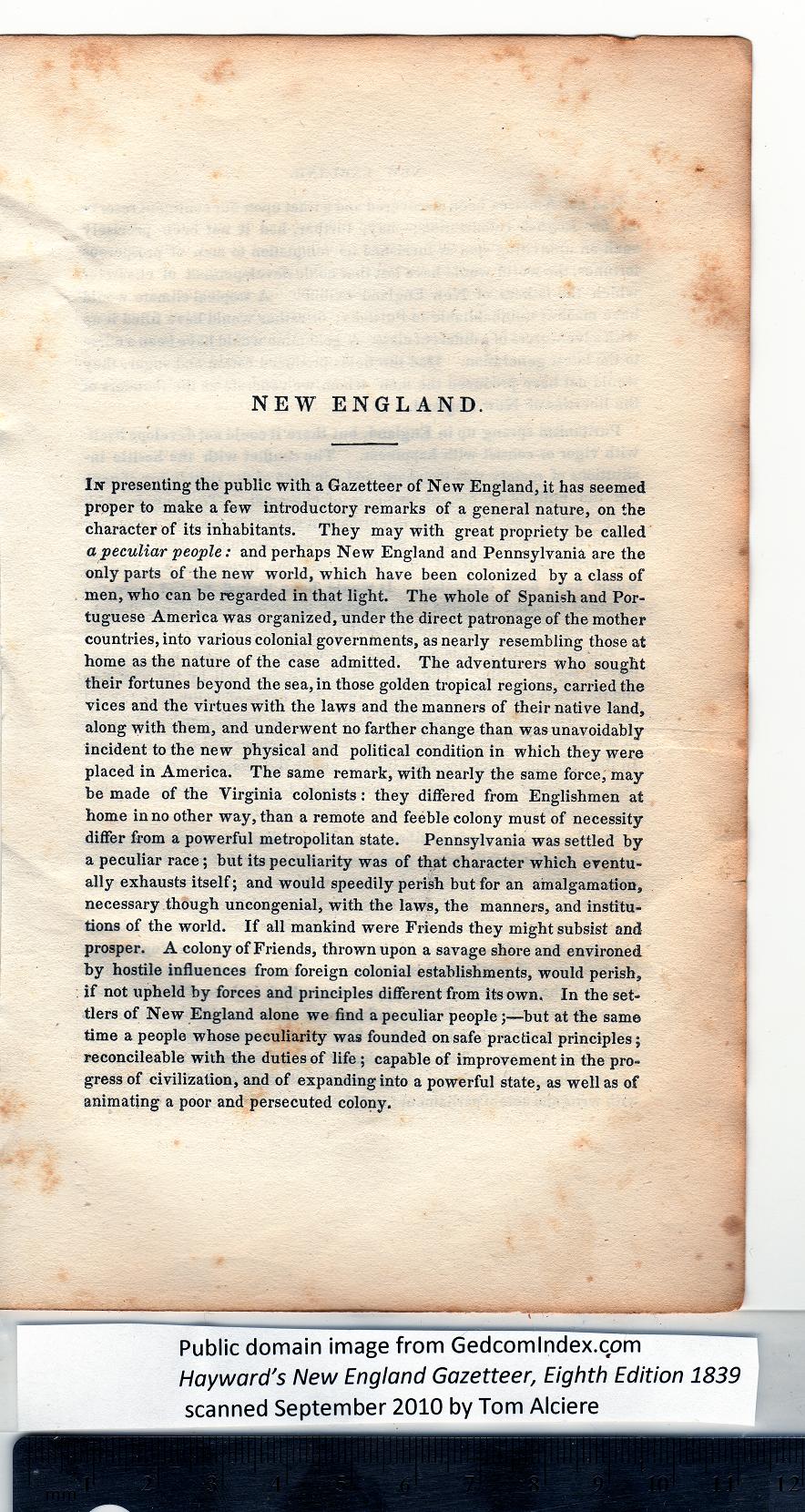|
NEW ENGLAND.
In presenting the public with a Gazetteer of New England, it has seemed
proper to make a few introductory remarks of a general nature, on the
character of its inhabitants. They may with great propriety be called
a peculiar people: and perhaps New England and Pennsylvania are the
only parts of the new world, which have been colonized by a class of
men, who can be regarded in that light. The whole of Spanish and Por¬
tuguese America was organized, under the direct patronage of the mother
countries, into various colonial governments, as nearly resembling those at
home as the nature of the case admitted. The adventurers who sought
their fortunes beyond the sea, in those golden tropical regions, carried the
vices and the virtues with the laws and the manners of their native land,
along with them, and underwent no farther change than was unavoidably
incident to the new physical and political condition in which they were
placed in America. The same remark, with nearly the same force, may
he made of the Virginia colonists: they differed from Englishmen at
home in no other way, than a remote and feeble colony must of necessity
differ from a powerful metropolitan state. Pennsylvania was settled by
a peculiar race; but its peculiarity was of that character which eventu¬
ally exhausts itself; and would speedily perish but for an amalgamation,
necessary though uncongenial, with the laws, the manners, and institu¬
tions of the world. If all mankind were Friends they might subsist and
prosper. A colony of Friends, thrown upon a savage shore and environed
by hostile influences from foreign colonial establishments, would perish,
if not upheld by forces and principles different from its own. In the set¬
tlers of New England alone we find a peculiar people ;-~but at the same
time a people whose peculiarity was founded on safe practical principles;
reconcileable with the duties of life; capable of improvement in the pro¬
gress of civilization, and of expanding into a powerful state, as well as of
animating a poor and persecuted colony.
PREVIOUS PAGE ... NEXT PAGE
This page was written in HTML using a program written in Python 3.2 and image-to-HTML text generated by ABBYY FineReader 11, Professional Edition.
|
